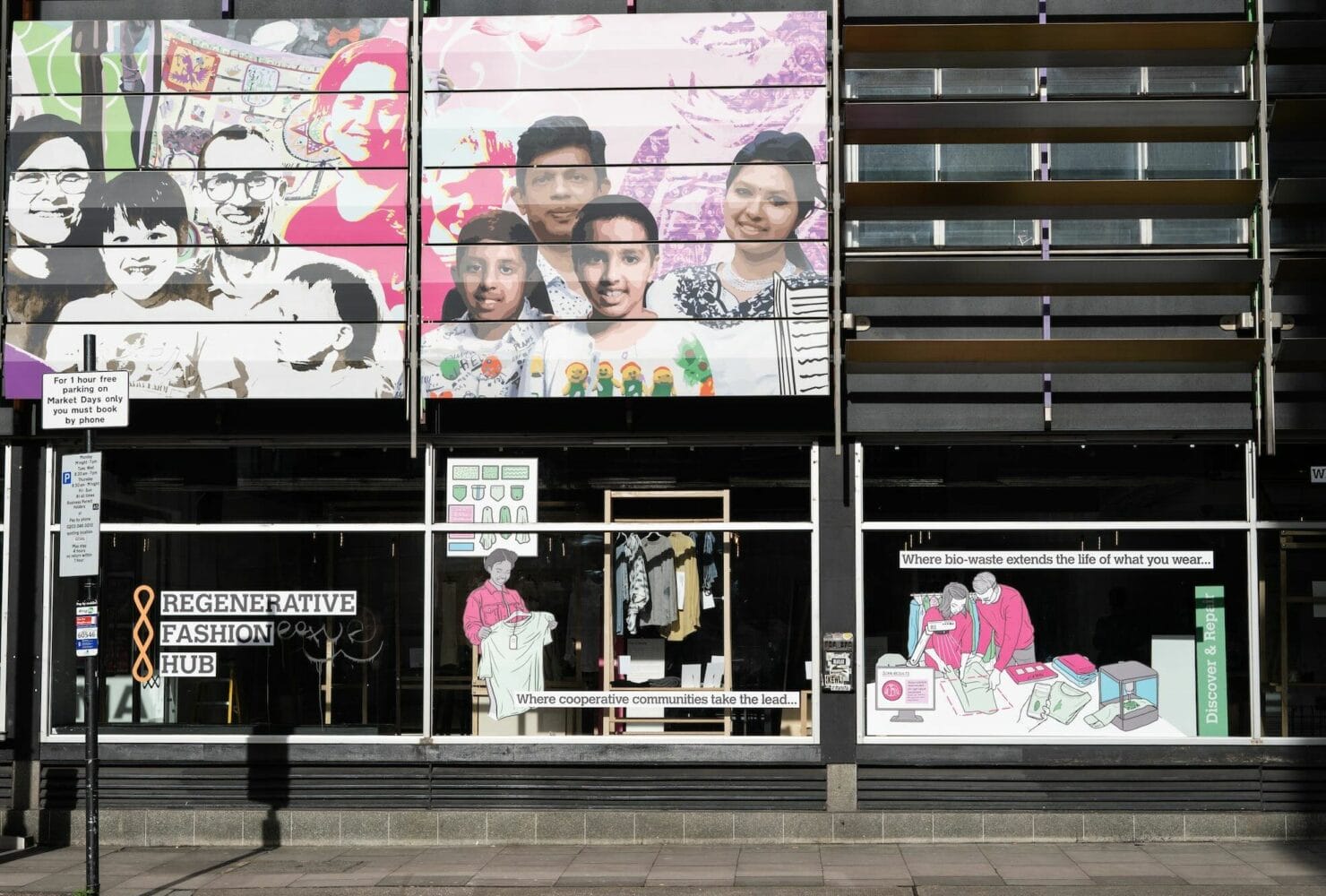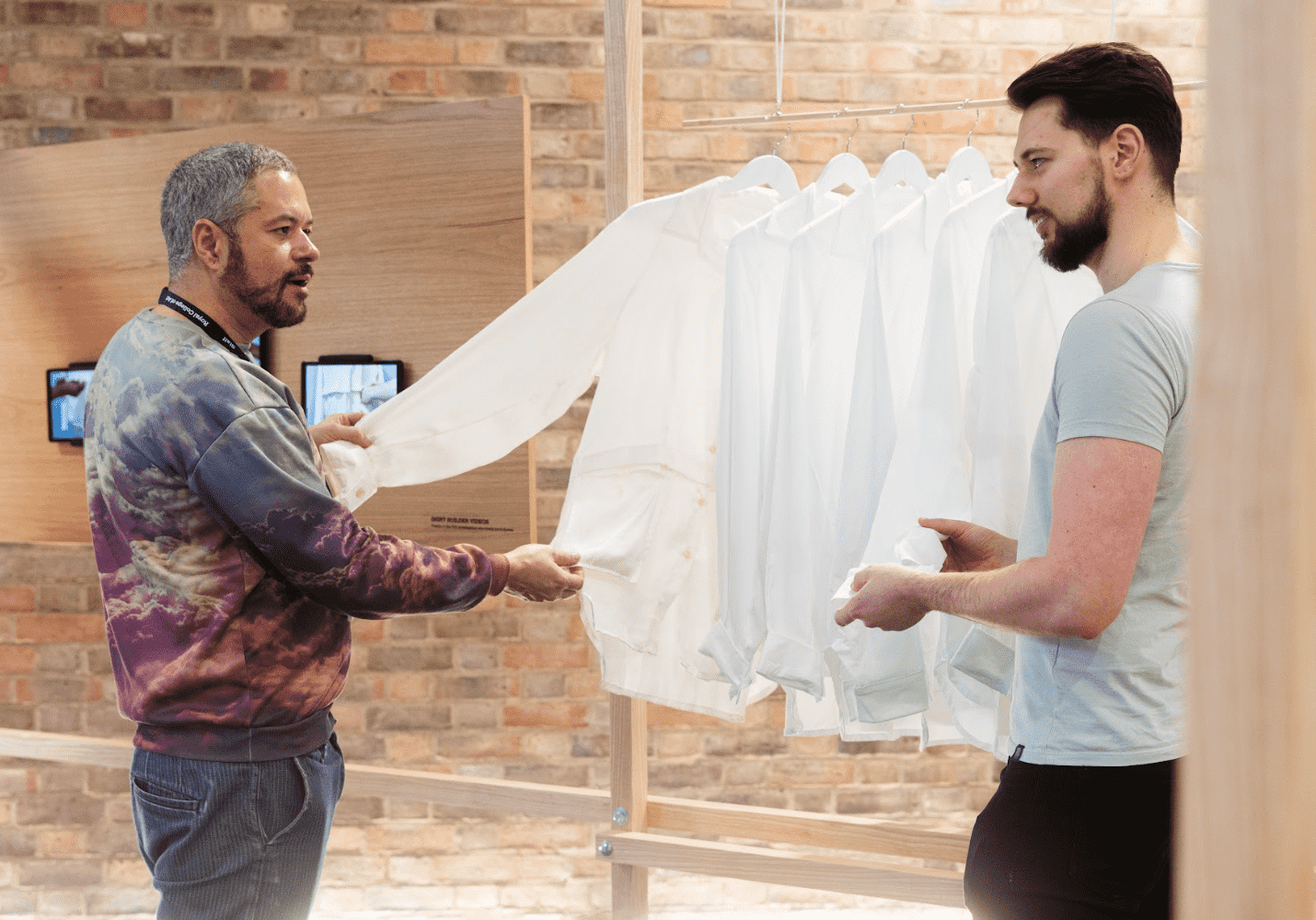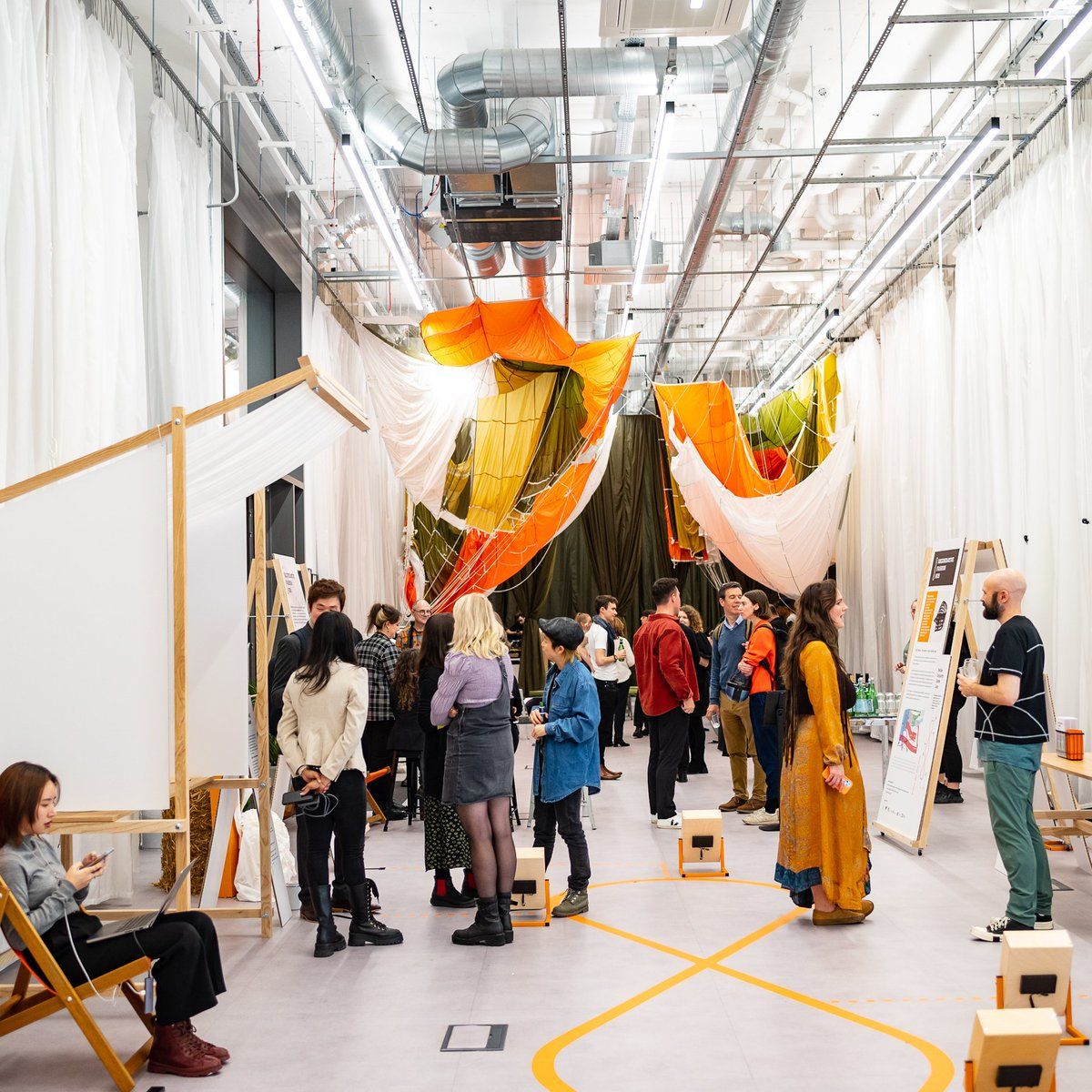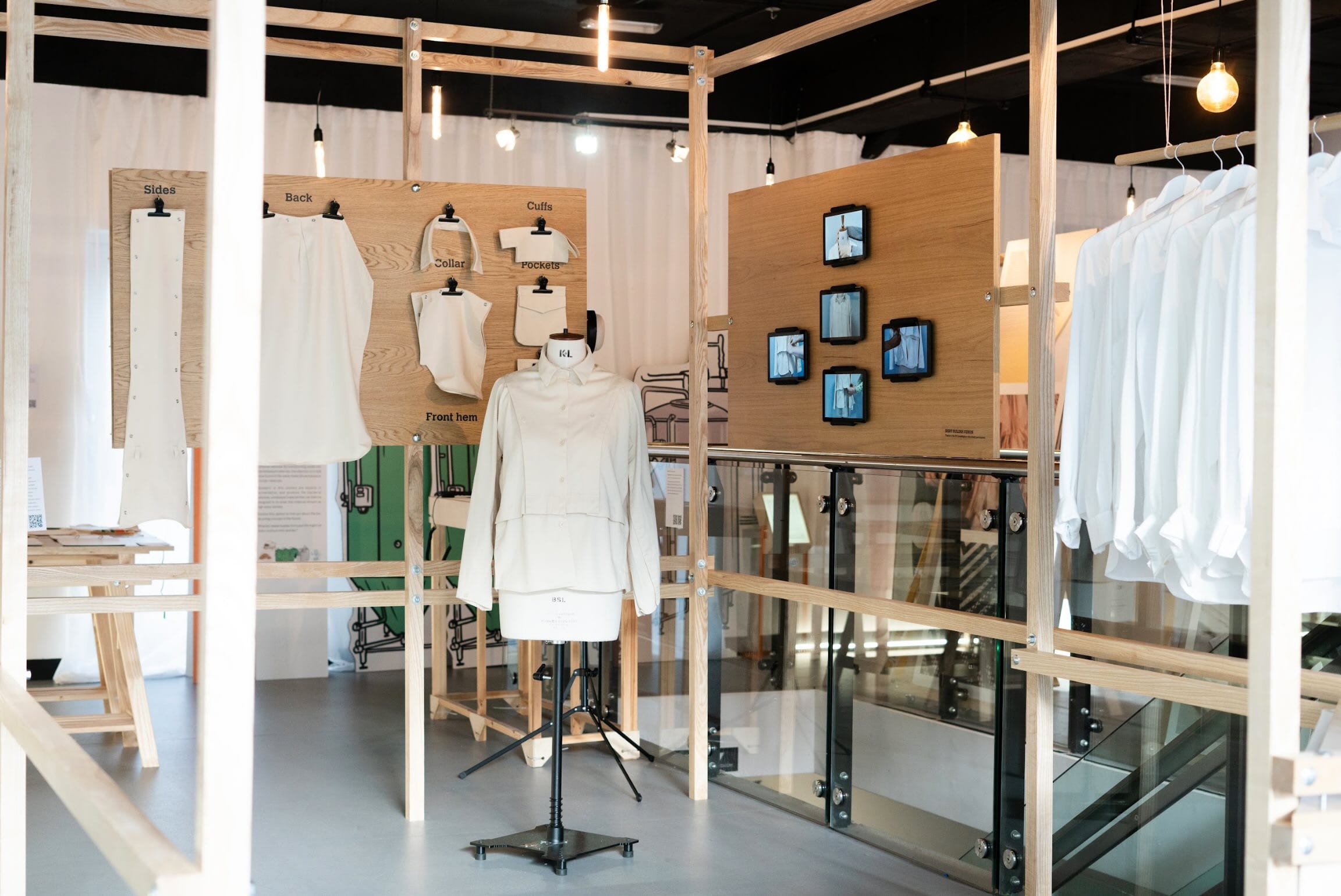About
The Regenerative Fashion Hub is an exhibition showcase of bio textiles development, product and consumer experience designs that bring to life the journey of biowaste from source of waste through to the consumption of apparel. The showcase is activated by a set of research studies, seminars, and ‘open house’ sessions.

Did you visit the Regenerative Fashion Hub?
We want to hear from you! Please complete a short questionnaire about how our research studies have impacted your business or practice.


Regenerative Fashion Hub - Stratford 2022
The first Regenerative Fashion Hub took place for six weeks from October-Novembeer 2022 at The Lab E20 in Stratford, a community space in Stratford founded by RCA Fashion alumnus Christopher Raeburn (MA Fashion Womenswear, 2006).
Inviting researchers to take part in live studies looking at different elements of the circular economy in the fashion and textiles industries, the Regenerative Fashion Hub aimed to advance public and industry knowledge on Circular Materials Design, Consumer Experience, and the Circular Fashion Supply Chain.
By opening its doors to the public several times over the course of the six week residency, the Regenerative Fashion Hub also aimed to enhance public understanding of the circular economy and how their consumer behaviours impact on the life of materials. The Hub encouraged the community to reimagine the fashion and textiles industry by looking at alternatives such as bio textiles and transparency in production. The exhibition, laid out as an infinity loop, called attention to different elements of textiles generation, production, and design allowing visitors to experience the lifecycle of a garment from biowaste to finished product.
Social Production Network at the Regenerative Fashion Hub

Regenerative Fashion Hub - Shoreditch 2024
The second Regenerative Fashion Hub took place at Rich Mix, in the heart of Shoreditch, in February-March 2024.
Building on the success of the first iteration, this exhibition presented further research and opportunities for the public to engage in the circular economy.
The exhibition was accompanied by a series of events, including a panel discussion, Visions of Regrowth, that questioned the current notion of a prosperous society as one that is closely linked with overconsumption of material resources. The panel was chaired by Chris Grantham, co-founder of Regenovate and included Charles Armstrong, Founder & CEO, The Trampery, Sophie Thomas, Director of Circular Design at Useful Projects, Founding Director at Thomas.Matthews, Brendan Conway, Associate Advisor at Community Led Housing London and Associate at Mobilise Public Ltd and Alessandra Tombazzi, Innovation & Change Designer, The Royal Society for Arts, Manufactures and Commerce. They considered the potential for new forms of abundance, social renewal and regrowth through a circular textiles economy that is regenerative by design.
Textiles Circularity Centre researchers hosted workshops that used Augmented Reality and Virtual Reality to explore new ways to engage consumers in the circular economy. For example, the study Imagining a future of textile circularity: A Virtual Reality experience asked ‘What will the future of textile circularity look like?’ As part of our research, we are finding innovative ways to engage consumers in sustainable textile choices. This study was designed to help consumers visualise how to put these concepts into practice, using virtual reality.
We hosted a Society and Citizen Policy Advocacy Workshop, in which we invited consumer-citizens to share their ideas for policy on sustainable fashion and clothing.
Research outcomes from the Regenerative Fashion Hub will be published in the forthcoming months on our Resources page.